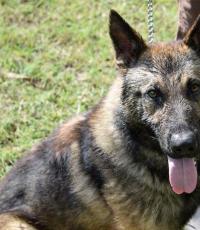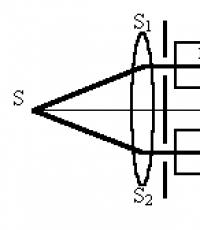Interesting professions for nature lovers. grower
The animal world is closely adjacent to the world of people. Sometimes it's just existence in different planes. For example, we know that bears and wolves live in the forests, and elephants and giraffes live in the tropics, but we do not have close contact with them. The maximum is the opportunity to contact them visually and even less often tactilely in circuses and zoos.
In other cases, we interact closely with pets: those that live in apartments and those that live outside the city.
Any animals, in some cases even wild ones, are largely dependent on humans. That is why professions associated with our smaller brothers are common.
Theory and practice in the animal world
Among the huge number of specialties that are associated with the world of animals, the following main areas of activity can be distinguished: theoretical and practical.
Theorists of working with the animal world can be combined into one concept - zoologists. In particular, these are professions related to nature and living beings, bordering on biology. Theorists consider questions from the species and type of an organism to its structure, their habitat and their interaction with each other. These include:
- Ornithologists.
- Entomologists.
- Paleontologists.
- Ichthyologists.
- Herpetologists.
- Serpentologists.
Practitioners work directly with wild animals and pets, interact with them. Practical professions related to animals (the list of professions is quite large) can also be divided into main groups.
Animal health
The most important thing in the life of people and in the life of animals is health. Based on this, important specialties are:
- Veterinarian.
Engaged in preventive and curative work. He also performs surgical operations, including emergency ones. The veterinarian takes tests, conducts examinations on the appropriate equipment, vaccinates and sterilizes his four-legged patients. He also deals with dental problems and delivers. In addition to direct medical activities, a veterinarian can take care of animals - cutting nails, brushing teeth.
- Zoopsychologist.
Responsible for the mental and psychological health of their wards. Studying habits, behavior, emotions, reactions. He specializes in working with the fears of animals, evens out inappropriate behavior, relieves stress and even depression in representatives of the fauna.
Training and education of animals
Let's say we take care of our health. The question arises: what are the professions associated with animals, aimed at education and training?
- Cynologist.
Works with dogs. He brings up service dogs that work in law enforcement agencies, at combat points and in the detention of dangerous criminals. Also, these dogs are trained to search for people and dangerous objects. They work with search engines and with the threat of terrorism. In addition to service dogs, the cynologist trains guide dogs, which are the "eyes" of blind people. The cynologist conducts compulsory training courses for dogs of all breeds, and also prepares animals for exhibitions and competitions.

- Trainer.
A specialty similar to a cynologist, but with a wider scope and various types of animals, both domestic and wild. The trainer works with animals in the circus, zoo, filming.
Animal care
Every animal needs care. This requires professions related to the care of animals.
- Groomers.
modern specialty. Includes several specializations that were previously separated. The duties of the groomer include monitoring the appearance of the pet. Their task is to bring the pet in order: haircut, washing, cutting nails, brushing teeth. You can also get advice on the care and maintenance of your tailed friend from a dog stylist.
- Aquarists.
The name speaks for itself. These are specialists in working with aquariums, their contents and directly the inhabitants of aquariums.

Unique profession - Animal Therapists
Professions related to animals include not only work directly with our smaller brothers, but also one slightly different direction - animal therapy (zootherapy). Animal therapists work with people who have serious physical and mental disabilities. They carry out prevention and treatment with the participation of animals.

Well-known methods are:
- Hippotherapy - treatment with the help of horses. The main focus of work is patients with disorders of the musculoskeletal system. And also such treatment is used to restore the consequences of traumatic brain injuries and to improve cerebral circulation.
- Canistherapy - treatment with the help of dogs. Most often, dogs help small patients with congenital pathologies of the nervous and motor systems.
- Felinoterapiya - treatment with the help of cats. It is practiced with patients with disorders of the psycho-emotional state, nervous diseases and diseases of the cardiovascular system.
- Dolphin therapy is a targeted treatment of acquired and congenital diseases of the nervous system in adults and children.
All kinds of professions are needed, all kinds of professions are important

Having singled out the main professions related to animals, it is necessary to dwell on some others. They are less popular, but no less important for our smaller brothers.
- Livestock specialists, farmers, grooms.
These are people who work on zoo farms and in the livestock industry. Their work is not noticeable to the average person, but their contribution to the life of animals is undeniably tangible.
- Sales consultants for pet salons and veterinary pharmacies.
People with experience and an array of knowledge in their field. The comfort and even health of pets largely depends on their advice and consultations.
- Handlers.
Assistant cinematographers. These are narrow specialists. Their task is to prepare the animal for an exhibition or competition.
Of course, all professions related to animals, and each separately, are important, and it is quite difficult to do without one or another specialist.
The most important thing that characterizes all people working with and for animals is benevolence, compassion, self-confidence and the ability to respond quickly even in the most unusual situations.
Professions related to nature and animals require great responsibility.
Crop production is one of the most important branches of the Russian economy, generating about 2% of GDP and providing more than half of the food on the tables and in refrigerators of Russians. In addition, crop production is a key supplier of livestock feed and raw materials for some industries. Finally, cultivation of cultivated plants is a huge sector in the labor market, of great importance in rural areas.
Labor resources in crop production in Russia
The number of persons employed in agriculture in Russia has steadily declined over the past two decades and has now reached less than 6 million people. Of these, only about half work directly at agricultural enterprises, the rest are engaged in the processing of agricultural products.
Accurate statistics on exactly how many workers are employed directly in crop production probably do not exist, since many farms combine plant growing with animal breeding. At the same time, part of the personnel is involved in both segments, that is, the professions in animal husbandry and crop production intersect. In addition, the calculations are complicated by the fact that in crop production, some types of work (for example, harvesting) are often entrusted to seasonal workers who are not employed by the enterprise.
However, the stubborn decline in the number of people employed in agriculture in Russia has been largely at the expense of crop production professions. This industry was actively modernized, during which manual labor was increasingly replaced by mechanical one. Even the picking of fruits and berries is gradually being transferred from manual harvesting to harvesting with the help of special combines. Also, the decrease in the number of workers in crop production was significantly affected by the decrease in sown areas in Russia.
It is important to note that all of the above does not apply to small farms (including illegal ones), which today provide a significant part of vegetables, fruits and berries grown in Russia. According to the most rough estimates, about 700 thousand - 1 million people are employed in this segment
Structure of employment in crop production
 All professions related to crop production can be divided into production and administrative support staff. As it is not difficult to guess, production personnel are those people who are directly involved in the production of products or maintenance of production processes. These are tractor drivers, combine operators, agronomists, etc. Management and support personnel include all those who are engaged in the general management of the enterprise and other non-production tasks. In addition to directors and purchasing / sales managers, this includes secretaries, accountants, drivers, canteen workers, cleaners, etc.
All professions related to crop production can be divided into production and administrative support staff. As it is not difficult to guess, production personnel are those people who are directly involved in the production of products or maintenance of production processes. These are tractor drivers, combine operators, agronomists, etc. Management and support personnel include all those who are engaged in the general management of the enterprise and other non-production tasks. In addition to directors and purchasing / sales managers, this includes secretaries, accountants, drivers, canteen workers, cleaners, etc.
Also in crop production, the practice of using temporary or seasonal workers is quite common, which at certain production stages can make up a significant part of the labor resource of the enterprise. Unskilled personnel are hired for seasonal work (usually harvesting), so they do not have an agricultural profession as such. It is quite another thing - permanent workers who are on the staff of the enterprise all year round and have certain qualifications that allow them to perform more complex and responsible types of work. This includes all the main professions of crop production - agronomists, tractor drivers, combine operators, etc.
The structure of the labor resources of an enterprise depends very much on various factors (specialization and size of the farm, climatic conditions in which the activity is carried out, the technological level of the enterprise, etc.) However, with rough calculations, we can say that the production staff in crop farms is about 85%, of which 75% are permanent workers.
 As for farms, the structure of their labor resources is rather peculiar. First, their staff is rarely strictly divided into positions and professions. As a rule, employees do a little bit of everything, depending on what needs to be done at the moment. Secondly, very often a farm is a family business in which members of the same family are employed, which makes it meaningless to build classic labor relations in the format of "administrative staff - ordinary workers". Accordingly, the professions of people who are engaged in crop production according to this scheme also do not lend themselves to the usual classification.
As for farms, the structure of their labor resources is rather peculiar. First, their staff is rarely strictly divided into positions and professions. As a rule, employees do a little bit of everything, depending on what needs to be done at the moment. Secondly, very often a farm is a family business in which members of the same family are employed, which makes it meaningless to build classic labor relations in the format of "administrative staff - ordinary workers". Accordingly, the professions of people who are engaged in crop production according to this scheme also do not lend themselves to the usual classification.
Brief overview of the main professions
In crop production, there are a huge number of different professions and specialties, so it is not possible to list them all within the framework of this article. We will consider only the most popular professions in Russia:
- agronomist,
- seed grower,
- tractor/combine driver
- agricultural machinery repairman
- reclamation engineer,
- soil scientist,
- agrochemist.
 An agronomist is the main person at an agricultural enterprise in matters of plant growing technology. He is responsible for organizing the production of all crops, developing a system of crop rotation, fertilization and the use of other agricultural practices. His responsibilities include drawing up crop cultivation maps, work plans. In other words, it is the agronomist who manages the entire production process, therefore, he is required to have knowledge of general biological disciplines, agriculture, crop production, agrochemistry, land reclamation, the basics of breeding and seed production, and the general economy of the industry. Agronomists are graduated from higher educational institutions of agricultural profile.
An agronomist is the main person at an agricultural enterprise in matters of plant growing technology. He is responsible for organizing the production of all crops, developing a system of crop rotation, fertilization and the use of other agricultural practices. His responsibilities include drawing up crop cultivation maps, work plans. In other words, it is the agronomist who manages the entire production process, therefore, he is required to have knowledge of general biological disciplines, agriculture, crop production, agrochemistry, land reclamation, the basics of breeding and seed production, and the general economy of the industry. Agronomists are graduated from higher educational institutions of agricultural profile.
Seed grower is also one of the most important professions of people in crop production. He works under the guidance of an agronomist and prepares seeds for sowing, treating them with special chemicals to fight diseases and insects. Also, the duties of a seed grower include caring for plants, supervising the work of threshing, cleaning and drying seeds. It is also entrusted with the functions of preparing storages and containers for storing seeds. For the profession of a seed grower, as well as for an agronomist, knowledge of general biological disciplines, agriculture, crop production, agrochemistry, land reclamation, the basics of selection and seed production is necessary. Professions of a seed grower are taught in higher educational institutions of an agrarian profile.
Tractor drivers perform a significant part of the field work in modern crop production, driving wheeled and tracked tractors with attachments. The duties of a tractor driver include plowing and cultivating fields, sowing, fertilizing, spraying pesticides, and performing other work in the field. A tractor driver must not only be able to drive a tractor and attachments, but also be able to carry out locksmith and repair work to quickly eliminate minor equipment breakdowns in the field. Although the harvester is very different in design and purpose from the tractor, at many enterprises harvesting with the help of the combine is also done by ordinary tractor operators. Specialists of this profession are trained in vocational schools, colleges and other educational institutions of this level. At the same time, the practice of training directly at the enterprise is widespread.
 A mechanic for the repair of agricultural machinery and machines is not directly involved in the production of crop products. However, no serious crop farm can do without one or more of these specialists. A locksmith is engaged in the repair and ongoing maintenance of agricultural machinery and equipment (tractors, combines, plows, cultivators, seeders, etc.) To perform this work, you need to be well versed in modern agricultural machinery, including electronics. Such specialists are trained at vocational schools, as well as at agricultural universities.
A mechanic for the repair of agricultural machinery and machines is not directly involved in the production of crop products. However, no serious crop farm can do without one or more of these specialists. A locksmith is engaged in the repair and ongoing maintenance of agricultural machinery and equipment (tractors, combines, plows, cultivators, seeders, etc.) To perform this work, you need to be well versed in modern agricultural machinery, including electronics. Such specialists are trained at vocational schools, as well as at agricultural universities.
Slightly less popular in Russia are such professions of people engaged in crop production as an reclamation engineer, a soil scientist and an agrochemist.
The reclamation engineer is responsible for preparing the fields for irrigation, under his supervision the maintenance of sprinkler installations is carried out. In order to properly organize the irrigation system, it is necessary to know geodesy, the ability to read relief topographic maps, and determine the slopes of the terrain. Land reclamation engineers are trained in engineering and agricultural universities.
A soil scientist examines the characteristics of soils in crop fields, determines the natural processes that affect the state of the soil, prepares recommendations regarding the use of certain parts of the field (which crops are better to grow, how to increase fertility, how best to fight erosion, etc.) Soil scientists are trained in agricultural universities.
The agrochemist directs the implementation of measures to increase crop yields, under his supervision the agrochemical laboratory of the farm determines the optimal plant varieties for the area and the fertilizer application system. It requires knowledge of general biological disciplines, chemistry, the basics of breeding and seed production. Universities graduate agricultural chemists.
In the modern world, any employer selects competent specialists, professionals in their field, who have clear goals and the desire to develop and improve, moving forward on the career ladder. You need to be active and courageous, this is being paid a lot of attention today. This is a responsible step into adulthood and it is very important that it be firm and decisive, and that the profession you have chosen brings pleasure. This choice is often very difficult, because in many respects it depends on it how your future destiny will develop.
If, having gone through all your hobbies and hobbies, you have come to the conclusion that you are most attracted to nature, you are ready to spend a lot of time outdoors, studying the world around us, then I would like to help you a little to make the right decision. I propose to consider some possible career options that you might like if you are a nature lover.
Biologist
As a rule, this kind of work takes place in special laboratories where experiments and scientific research are carried out. But there will also be work in the open air, when it will be necessary, for example, to study the behavior of organisms in natural habitats or to collect samples of a plant for further study. The work is very interesting and entertaining, especially if you love your job.
36.0
For friends!
Reference
People have been growing ornamental plants for a very long time. Ancient Greek gardeners grew roses, lilies of the valley, and poppies all year round. The favorite flowers of the Egyptians, judging by the records in ancient papyri, were lily, myrtle, mignonette and lotus. In ancient Russia, monastery gardens, gardens of princes and boyars were famous for their flower beds. They were called "districts". Peonies, lilies, irises, tulips and daffodils were grown in the garden of the Moscow Kremlin in the 16th-17th centuries. Flowers and seeds in Russia of those times were supplied mainly by foreign companies.
Description of activity
Floriculture is the cultivation of flower crops, a branch of crop production. Flower growers are engaged in the breeding and cultivation of flowering and other plants in order to create bouquets, greenhouses, open ground green spaces and to decorate residential and industrial premises. They try to create plants whose flowers have a more attractive appearance and are better preserved after they are cut. Flower growers select decoratively valuable varieties, develop techniques for propagating and growing herbaceous flower and decorative leafy plants.
Flower growers-breeders work mainly in laboratories, and industrial flower growers spend more time in greenhouses and on open ground.
The florist must start growing certain crops on a strict schedule, because most of the flowers are required by a certain date. In this he will need knowledge in the field of agronomy. It develops ways to prevent and control plant pests, diseases and other disasters. Flower growers create more and more new types of plants: shade-tolerant, drought-resistant, etc. All decorative indoor plants were bred on the basis of wild ones thanks to the efforts of flower growers.
The flower grower prepares the soil and planting material for sowing. Moreover, he uses different methods depending on the type of plant. The flower grower knows different ways of watering and weeding ornamental plants, the rules for digging and loading flowers. He regularly inspects his flowers and plants for signs of disease.
Wage
average for Russia:average in Moscow:average for St. Petersburg:
Job responsibilities
The flower grower is working on the landscaping of territories and premises. Its activity begins with the processing of seeds, tubers, bulbs for planting. He sorts them and prepares the soil for planting. If the plants are planted in a decorative flower bed, then the grower must follow the planting plan in order to create the intended pattern.
When the plants are planted, they need to be watered and fertilized. The florist regularly sprays the flowers with disinfectants, removes weeds, spuds, weeds and, if necessary, pollinates. As needed, this specialist ties up the plants and is engaged in the formation of crowns of ornamental shrubs.
Depending on the variety of plants, the grower must collect them at a certain time and dig up planting material. Ripe bulbs and tubers need to be sorted and prepared for transplanting or storage.
Features of career growth
The work of flower growers is in demand in greenhouses, greenhouses, botanical gardens. In addition, they are engaged in landscaping parks and squares. If you have sufficient education and work experience in this field, you can teach the subject "Floriculture" in universities or colleges, or rise to the head of the floriculture laboratory.
Commercial floriculture (growing flowers to create bouquets, selling seeds, etc.) is now a very profitable branch of the non-food horticultural industry.
Employee characteristic
The flower grower needs to keep in mind a large amount of information: the names of numerous plant varieties (including in Latin), how to care for them, reproduction features, specific diseases, and much more. Flower plants are usually very fragile and delicate, so they must be handled (planted, harvested, cared for) very carefully. Attentiveness and sharp vision will help the grower to recognize plant diseases at an early stage in time, to see pests. In addition, these qualities, together with good color perception, will help to see the slightest differences between varieties.
Working in a greenhouse or outdoors will require physical endurance and diligence.
A florist with a specialization in decorator must have good taste and knowledge in the field of landscape design.
The florist must love nature. Knowledge in such sciences as botany, chemistry, biology will only help him in his daily activities. But an allergy, for example, to pollen will greatly interfere with this specialist.
33.3
For friends!
Reference
Plant growing helped ancient man to securely provide himself with food, and not rely only on luck in hunting or gathering.
Today, crop production provides the world with most (70%) of food. Workers in this area are engaged in the cultivation of cultivated plants that are used in the food industry, in the production of animal feed, other raw materials, for decorative and other purposes.
Description of activity
Growers do most of their work outdoors. The busiest period is spring, summer and autumn, that is, the period of growth and maturation of plants. Harvesting often involves working from early morning until late at night, as well as on weekends and public holidays. In winter, the grower is also not idle. She works in greenhouses, solves issues of increasing the yield of certain crops.
As well as the amount of work, the salary of a grower can depend on the season and yield.
The plant breeder is guided in his activities by knowledge from the field of agronomy, biology, botany and other special sciences. If the company where this specialist works is engaged in the production of animal feed, knowledge of the basics of animal husbandry will also be useful to him. Its work today cannot be imagined without the use of agricultural machinery (tractors, combines). However, the traditional tools - shovels, pitchforks, rakes - the grower also often has to turn to.
In addition to working directly with plants, this specialist can sell manufactured products.
Job responsibilities
The duties performed by the grower are clearly distributed according to the seasons. Before you start sowing, you need to do a lot of preparatory work. Develop a production plan, determine the volume of production.
The duties of the grower include preparing the soil, seeds and seedlings for sowing. He applies fertilizer, plants plants in the ground. The grower prepares pesticides to control motes and pests, treats plants with them. This specialist takes part in the harvest, performs the primary processing of the harvested plants and prepares them for storage. If necessary, he must be able to perform all these actions with the help of agricultural machines. Sometimes he has to deal with the maintenance of agricultural machinery.
The duties of a grower may also include selling the crop to wholesale buyers or to the market.
Features of career growth
The work of a plant breeder is in demand on farms, in crop farms, and in private firms engaged in the production of agricultural products. An employee with the experience and inclinations of a manager can advance to a manager or start his own business.
A sufficient level of education will make it possible to work in educational institutions or scientific institutes.
Employee characteristic
The grower must love nature, know a lot about plants and treat them with care. He can not do without diligence, physical endurance, willingness to wake up early and work overtime. Allergies can be a barrier to working in this industry, as these professionals often have to deal with chemical fertilizers and other products. The grower must have good eyesight and attentiveness. This will help him, for example, to notice plant diseases in the early stages.
In addition to knowledge in the natural sciences, a grower may need skills in driving a car, tractor or combine, as well as skills in the repair and maintenance of these modes of transport.
The need to acquire raw materials and sell their products will require from the grower sociability, entrepreneurship, the ability to find partners and negotiate.





